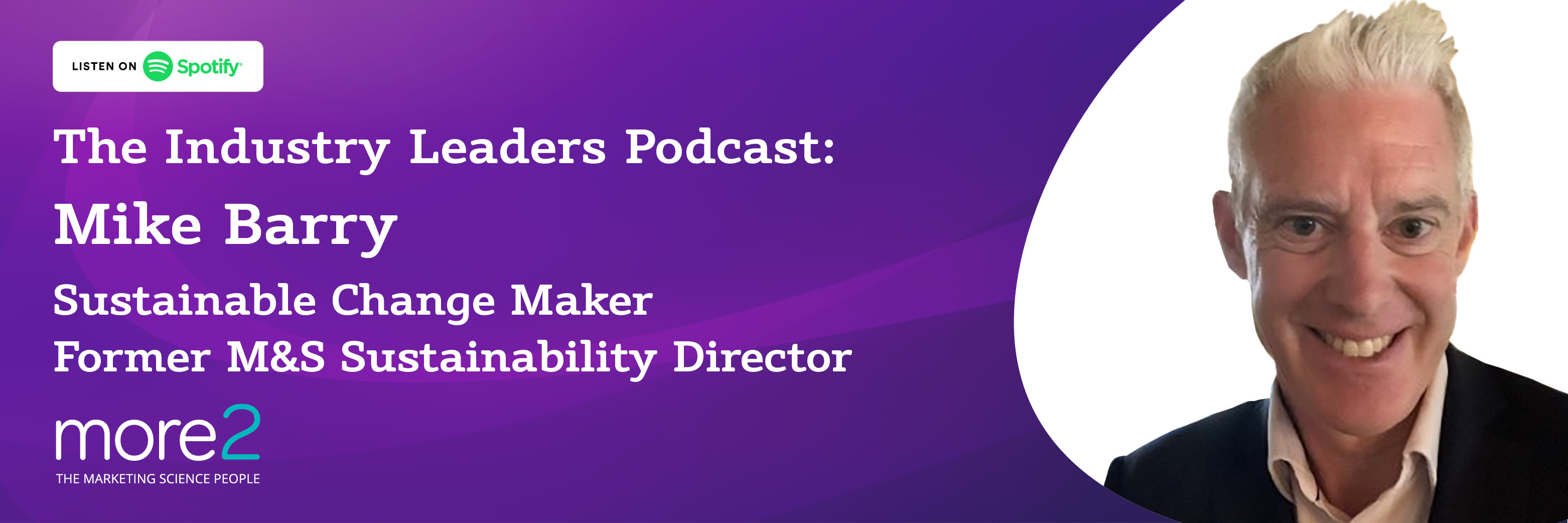How direct brands can improve their sustainability
July 12, 2023 •Sophie Colquhoun
.png?height=630&name=How%20direct%20brands%20can%20be%20more%20sustainable%20(1).png)
It’s a topic at the forefront of both consumers and businesses minds – how can we be more sustainable? Direct brands have a huge impact on the environment and are feeling a lot of pressure, particularly from consumers, who want to know what they’re doing to be more sustainable.
Here are some key takeaways from our recent episode with Former M&S Sustainability Director, Mike Barry on how you can improve your sustainability.
Know what you’re starting with
Chances are you’ve probably started implementing changes already but if you’re not sure where to start or where to look, Mike advises asking yourself some key questions:
- What are the two or three dominant things that drives your social environments impact?
- What are you like as a neighbour to the community around you?
- What’s your energy cost and carbon impact associated with it?
- What’s your resource use and circularity opportunities associated with that?
Know your why
Mike was responsible for the Plan A initiative at Mark and Spencer’s and reflected on how this started.
For other businesses Mike suggests it could be a different ‘why’ driving sustainability – for some it’s cost base and reducing it and for others it’s because they feed into a supply chain of a very big business, who increasingly want their suppliers to be moving forward in this space in order to keep their space on the shelves.
Knowing your why will help you and your employees care about drive change.
Make your existing model less bad
Change cannot happen overnight, but it is the small changes within sourcing, energy, packaging, recycling, and product lifecycle that can add up and make a big difference.
Mike says this is where M&S started:
“The second part of that was making sure we got a grip on cost base […] We took a huge chunk out of M&S operating cost space in those first few years by focusing down on energy use in the stores, logistics, food waste, materials and net.
We saved the business 715 million pounds over ten years and that was incredibly important money for M&S to reinvest into its rebirth.”
Be open to collaboration with those in your industry
Change is difficult and to make real impact, companies are going to have to work together for what Mike calls the 80-20 rule.
Mike references palm oil which is heavily used in the food industry and is associated with devastating deforestation in Southeast Asia.
“M&S wants to stop that deforestation in its food products, right thing to do, wow it’s hard. It’s a liquid commodity brought seven steps away from you. So, M&S has to work with Tesco’s and Sainsbury’s and Walmart and Pepsi & Co to [...] co-create a shared solution there.”
WRAP brings multiple different food and drink companies together to make sure that everybody’s gathering the same data on their impacts and sharing it up and down.
“80% of it is about making sure that you work in partnership with the rest of your sector to drive change rather than to do it on your own. But be clear about the 20% that’s your secret sauce to help you uniquely win.”
Quantify it
“I do think it’s not enough to have it loosely in your head […] You’ve got to be able to turn it to numeric to quantify it.”
Mike stresses the importance of having quantifiable evidence for those both internally and externally.
It’s unlikely that all businesses will be able to have one or two people doing this full-time, but Mike suggests weaving it into your KPI narrative about how your business is running on a day-to-day basis.
“At least half of what was spoken about you’d be gathering anyway. You know what your energy bill is because you’re a good commercial organisation. You know how much you’re spending on raw materials; you’ll know the motivation and moral of your teams. You just need to make sure that that’s adding into your knowledge about your sustainability business case.”
Avoid making green claims
Mike advises brands check out bodies such as Planet Tracker, which looks at six types of greenwashing and what to do and what not to do, and the upcoming FDTP (Food Data Transparency Partnership), which is bringing consistency across all the data that flows through cost, all the supermarkets and their suppliers to make sure it’s robust, consistent and it’s gathered efficiently. This then underpins claims made by businesses.
Aim for B-Corp Certification
If you do want to have a label that highlights your green credentials, Mike recommends the B-Corp certification. There is effort and cost towards becoming B-Corp certified but it assesses across all dimensions: social, environmental, and economic and is widely recognised taking the guess work out for customers.
You don’t need 100% of people engaged to change the system
This is true for both customers and employees, if you can get some people on board, you can still drive huge change.
To listen to Mike’s tips and insights in full, listen to our latest Industry Leaders episode.
Or search 'Industry Leaders Podcast' wherever you listen to your podcasts.


